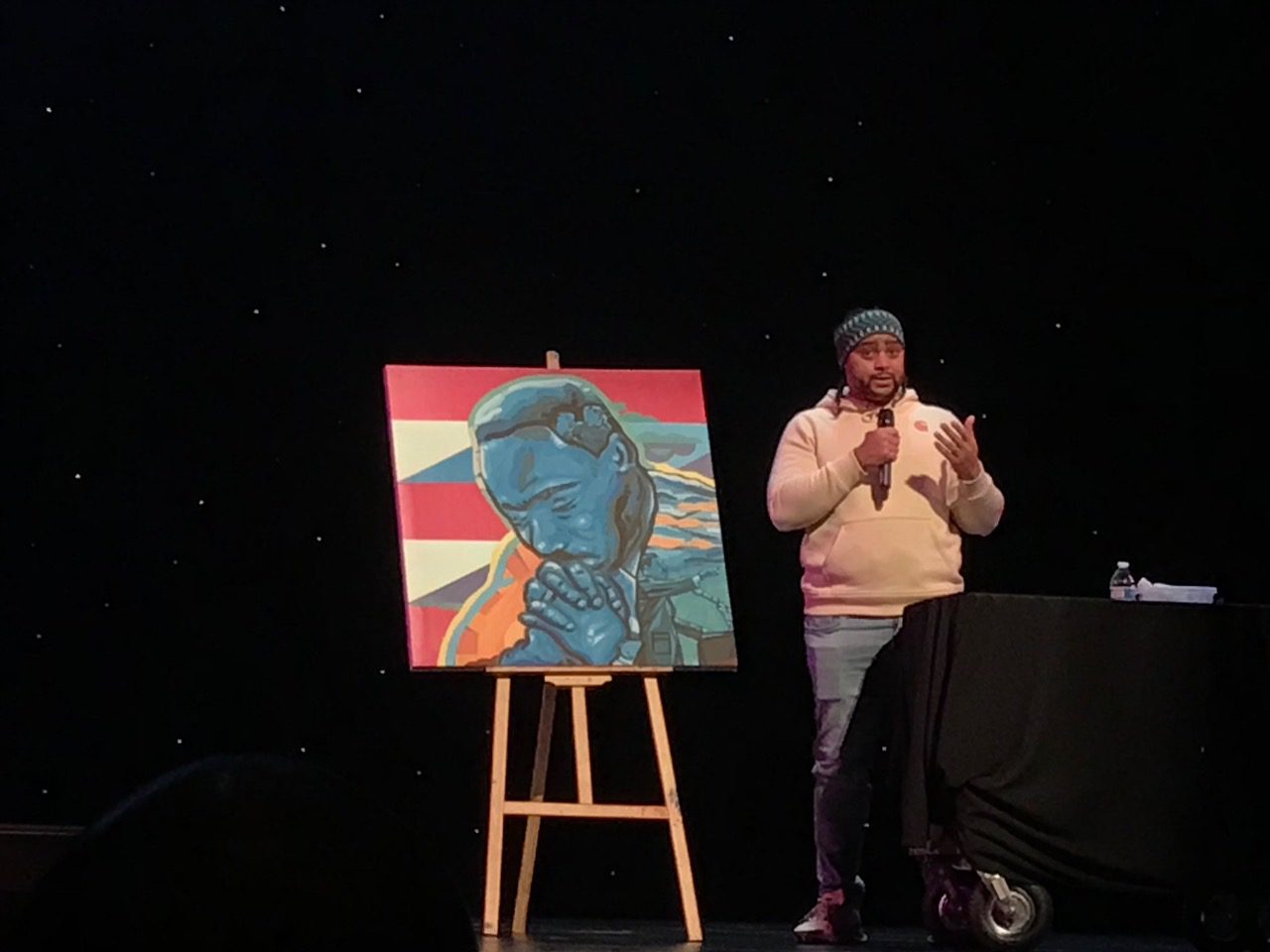As emcee for the City of Carmel’s Martin Luther King Jr. Day Commemoration at The Tarkington at the Center for the Performing Arts, Dee Thornton shared what King would likely view as important if he were alive today.

The civil rights leader fought to strike down Jim Crow laws, which suppressed Blacks from voting, and helped gain support for the Voting Rights Act of 1965.
“It’s important to note that the current fight for voting rights is for all Americans,” said Thornton, a member of Carmel Mayor’s Advisory Commission on Human Relations. “Today 57, years later, we are experiencing an unprecedented attack on our democracy and voting rights. This assault on voters is sweeping by our country, state by state, and is one of the greatest self-inflicted threats to our democracy and to our way of government. Can you imagine living in America without a democracy?”
Thornton said Martin Luther King Jr. would want her to encourage everyone 18 and older to register to vote. She encouraged attendees to read the Freedom to Vote act and the John R. Lewis Voting Rights Advancement Act.
The Freedom to Vote Act addresses voter registration and voting access and establishes Election Day as a federal holiday. It also forms national rules for voting by mail and early voting. The Lewis Voting Rights Act would restore and strengthen part of the Voting Rights Act of 1965 to prevent discrimination in state voting laws by requiring a state to get preclearance on changes. Both bills passed the U.S. House of Representatives, with Democrats’ support, and are stalled in the Senate.
“As concerned citizens, you should know what those pieces of legislation contain, then after you read if you agree, you should make that phone call and write your state’s senators, Sen. Todd Young and Sen. Mike Braun, and voice to them that you believe voting is an equal right for all Americans,” Thornton said.
Thornton said recognizing the idea to declare Martin Luther King Day as a national holiday came shortly after his assassination on April 4, 1968. A piece of legislation was soon introduced in Congress, but it wasn’t until 1979, on King’s 50th birthday, that it finally came to a vote. There were more than 300,000 signatures in support, and it was backed by President Jimmy Carter.
“The vote was rejected by five votes,” Thornton said. “Public support continued to grow, and not in small part by blind musician and social activist Stevie Wonder, who used his talent to help garner the support to lobby Congress.”
Wonder wrote the song “Happy Birthday,” encouraging a national day to recognize King’s birthday.
There were more than 6 million signatures in favor of the holiday when the bill came up again in 1983. This time, it passed the U.S. House of Representatives and the Senate.
“After two days of furious debate, President Ronald Reagan agreed to sign it into law,” Thornton said. “Today, we recognize Dr. Martin Luther King’s birthday as a national day of service, so never underestimate the power that every individual has to make meaningful change.”
Carmel City Councilor Jeff Worrell, on behalf of Carmel Mayor Jim Brainard, who wasn’t able to attend, made a proclamation on Brainard’s behalf ,declaring Jan. 18 as a National Day of Racial Healing.



